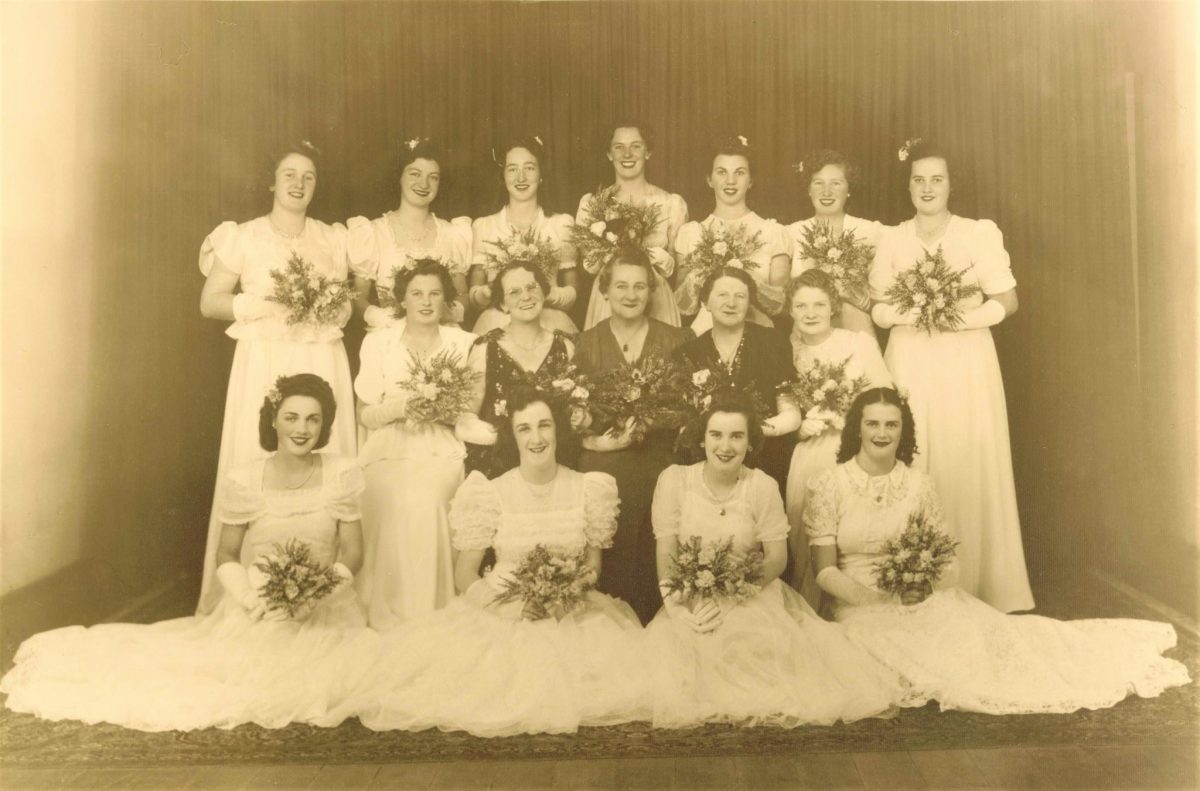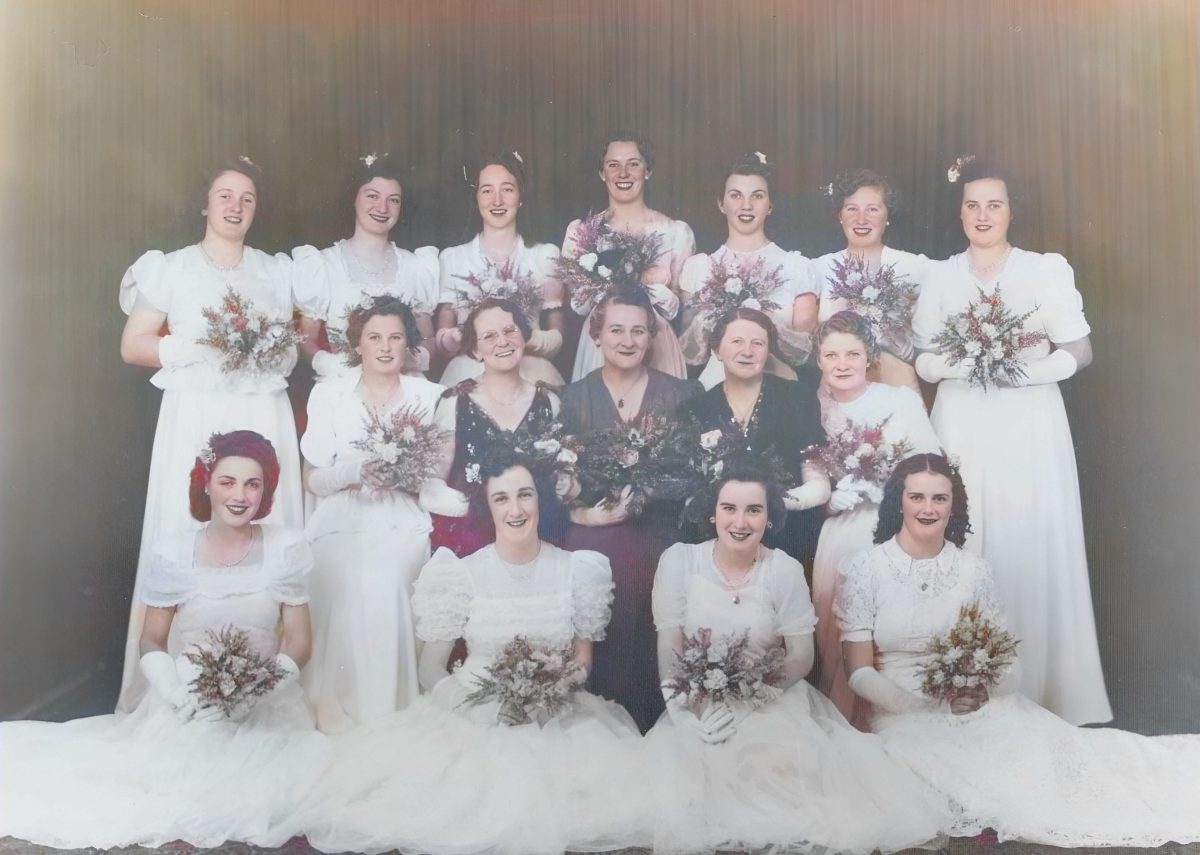
Back row (from left): Helen McVean, Alma Humphries, Valma Jenkins, Phil Graham, Jean Nash, Margaret Gooch, Marion Crisp. Centre row (from left): Lorna Gillard, Miss Eileen Day, Mrs Eadie Graham, Miss Dora Day, Jean Hall. Front row (from left): Norma Dunn, Molly Clark, Marie Hamilton, Yvonne Geoghan. Photo: Museum of the Riverina (Wagga Grammar School collection).
In this week’s photo from the Museum of the Riverina, we join the young ladies of the Wagga Grammar School (WGS) as they make their debut at the Wonderland Theatre in the CBD in August 1947.
In December 1914, after their return from a trip to Europe, the Day sisters, Eileen and Dora, bought WGS, which had been operating as a small private day school.
At the time of purchase, Eileen was just 24 and Dora a few years older. With a background of travel, teaching experience and a special love of the arts, the Day women were both well equipped to run the school.
While Eileen was the principal, Dora taught the junior students and took the senior students for sewing and art lessons. Dora’s needlework was famous in Wagga and she won many prizes at the Wagga Show.
Students received a solid grounding in the ”3 Rs” – reading, writing and arithmetic. The usual subjects were taught at Wagga Grammar, including English, mathematics, history, geography, music, sewing and art (drawing and painting). French was also taught at one stage.
Although not affiliated with any particular church, religious teaching was also considered important. Each day began with prayers in the junior room.
There was also a physical culture (”Fizzy”) class once a week. Social graces also ranked high in the curriculum, so it is unsurprising that female students were encouraged to make their debut.
The WGS debutante ball was incorporated into the Church of England Ball and declared to be ”The Ball of the Season”.

A colourised version of the debutantes at the Wonderland Theatre on the evening of Wednesday, 17 August, 1947. Photo: Museum of the Riverina (Wagga Grammar School).
The tradition of the ”Deb Ball” reached its peak in Australia in the 20th century, and continues in many regions today.
Traditionally, it marked a young woman’s formal entrance into society and was once used to present eligible young women to prospective partners. Going back a few centuries in Britain, wealthy young women would be presented to the Sovereign at court, with the last batch of debutantes presented in 1958 before Queen Elizabeth II ended the practice.
Back in Wagga, the young ladies headed to the Wonderland Theatre on the evening of Wednesday, 17 August, 1947, where attendees were entertained by Billy Hill’s Orchestra and enjoyed a sit-down supper.
One of the special guests at the ball was Arthur Nieberding Fuller, MHR, who had been elected as a Member of the Australian Parliament for Hume in 1946 and was at that time Government Whip for the Labor Party.
Thirteen WGS girls made their debut that year.
